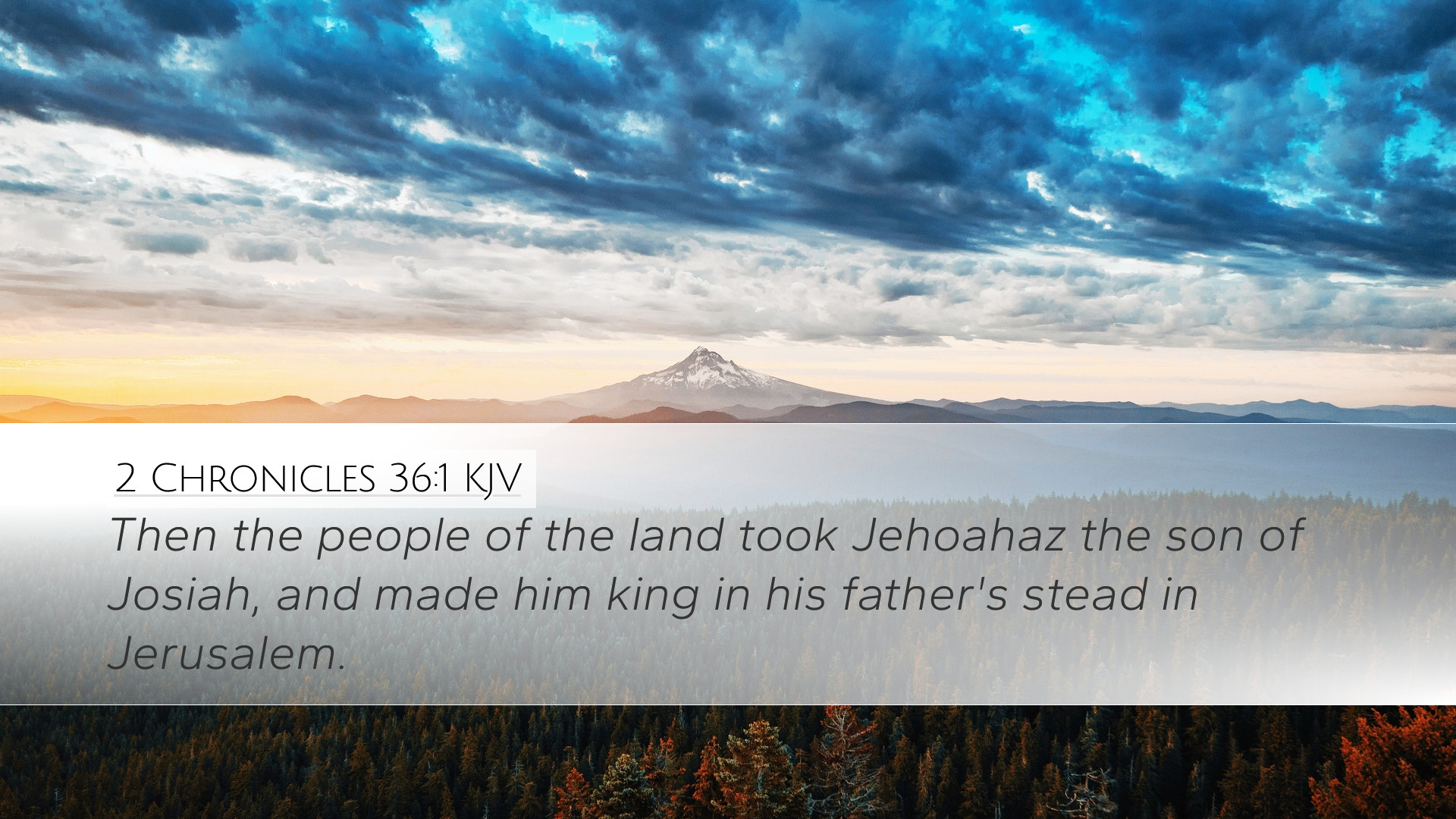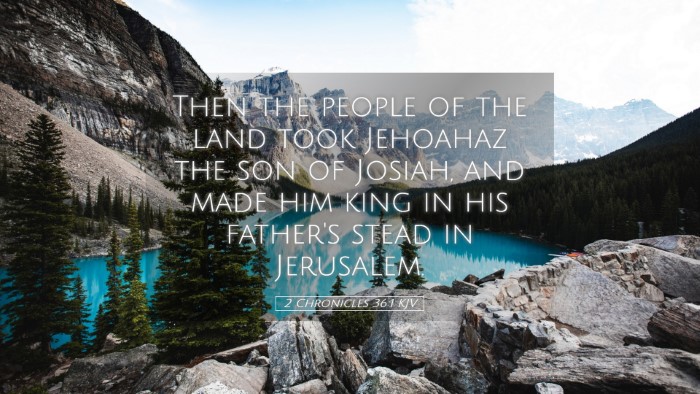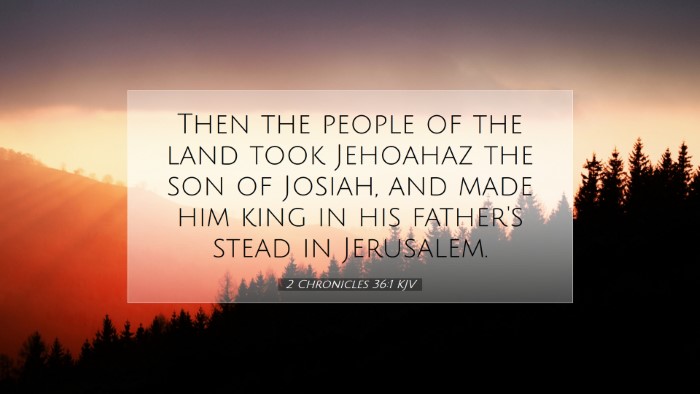Commentary on 2 Chronicles 36:1
Verse Reference: 2 Chronicles 36:1
“Then the people of the land took Jehoahaz the son of Josiah, and made him king in his father's stead in Jerusalem.”
Introduction
The narrative of 2 Chronicles 36:1 serves as a critical juncture within the history of Judah. This verse introduces a significant shift in leadership and foretells the impending decline of the monarchy, presenting themes of divine sovereignty, national destiny, and the consequences of moral failures.
Contextual Background
Following the righteous reign of King Josiah, who brought religious reform and a return to covenant faithfulness, his death marks the beginning of a tumultuous period in Judah's history. The new king, Jehoahaz, also known as Shallum, represents a shift from the legacy of Josiah's reform to the spiritual and moral decay that follows.
Analysis of the Verse
According to Matthew Henry, the mention of Jehoahaz being made king “in his father's stead” signifies not only a change in leadership but also the consequences of the nation’s collective choices regarding governance. Henry elucidates that the choice of Jehoahaz reveals a populace that, despite the prior reformation, remains susceptible to the influences of surrounding cultures and powers.
Albert Barnes elaborates on the political maneuvering of the time, noting that the elevation of Jehoahaz was largely influenced by the people’s desire for a leader who could align with their interests. This reflects the wider tendency of the nation to seek governance that aligns with immediate desires rather than long-term faithfulness to God’s covenant.
Adam Clarke comments on the name “Jehoahaz,” interpreting it as “Yahweh has taken hold” which, in contrast with his reign, poignantly suggests that despite a name that invokes divine assistance, Jehoahaz would ultimately lead Judah into deeper apostasy. The covenant relationship with God would be strained through this leadership transition.
Theological Insights
This verse provides profound theological implications regarding divine sovereignty and human agency. The people taking Jehoahaz as king represents the choices made by humanity as they navigate governance and leadership responsibilities.
- Divine Judgment: The ascent of Jehoahaz serves as a divine mechanism to enact judgment upon Israel for turning away from God’s commandments. The neglect of the spiritual heritage left by Josiah was met with a corresponding divine response.
- Covenantal Faithfulness: The king's role as the covenant representative (predominantly seen in the model of David) is foundational to understanding the dynamics of the Israelite monarchy. Jehoahaz's failure foreshadows the disastrous outcomes of unfaithfulness.
- Human Influence: The verse illustrates the people's influence over the political sphere, which raises the question of how congregants might also sway spiritual leaders today.
Lessons for Today
For present-day pastors, students, and theologians, several lessons emerge from this verse:
- Leadership and Accountability: It is critical for leaders to maintain accountability to God’s standards rather than succumbing to populism and superficial desires of the populace.
- Awareness of Cultural Influences: Vigilance against cultural pressures is essential for the church today. The patterns of society often demand compromise, which can lead to spiritual disarray.
- Valuing Heritage: There is profound wisdom in cherishing and learning from the spiritual heritage established through previous generations of leadership and reform.
Conclusion
In summary, 2 Chronicles 36:1 introduces not just a new reign but also serves as a poignant reminder of the fragility of national faithfulness to God amidst changing leadership. As clergy and scholars reflect on this narrative, the opportunity to align the lessons learned with the call for faithful leadership remains ever relevant. The history of Judah’s kings warns of the dangers inherent in forgetfulness toward God, urging believers to continuously seek His guidance in all leadership endeavors.


